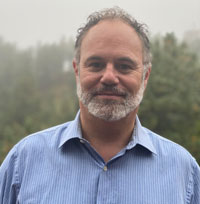Dear colleagues,
I look forward to seeing many of you shortly at our Annual Conference in Valencia!
For those of you who are not attending in-person, may I suggest you consider atttending the plenaries online. Details and registration are available here .
Here follows a summary of the latest publications and presentations by our members:
In Beyond Fragmentation: Clinical Journeys in Contemporary Psychoanalysis and Psychotherapy, Ingrid Pedroni (Italy) centers a self psychological perspective in the spirit of an integrationalist. Spyros Orfanos notes that Pedroni’s book “makes comparisons among therapy schools that are lucid and, at times, magisterial,” adding that she “captures the radical changes that are taking place in psychoanalytic epistemology.”
In Risking Intimacy and Creative Transformation in Psychoanalysis, Lauren Levine (USA) considers the impact of trauma and creativity on the challenge of creating one’s own intelligible story. She’s interested in the stories we tell, individually and collectively, as well as what gets disavowed and dissociated by experiences of relational, intergenerational and sociopolitical trauma. She’s also concerned with whose stories get told and whose get erased, silenced and marginalized, and uses film, dance, poetry and literature as creative frames to explore diverse aspects of psychoanalytic process.
Drawing on unpublished archival interviews and correspondence, Ann D’Ercole (USA) offers a comprehensive view of early psychoanalytic pioneer Clara M. Thompson. D’Ercole’s ambitious two-volume biography, Clara M. Thompson’s Early Years and Professional Awakening: An American Psychoanalyst (1893-1933) and Clara M. Thompson’s Professional Evolution and Legacy: An American Psychoanalyst (1933-1958), clarifies and celebrates Thompson’s role in psychoanalytic history, reclaiming her numerous and valuable contributions to the field as we know it today.
Psychopathology of the Situation in Gestalt Therapy: A Field-Oriented Approach, a volume co-edited by Margherita Spagnuolo Lobb (Italy), explores new ways of treating difficult clinical situations in the uncertainty of a world in crisis, through a relational, phenomenological and aesthetic field-oriented lens. The Gestalt-centered perspective modifies the entire experiential field and allows the presence of the therapist to be modulated.
Noel Jeffs (Australia) offers a series of poetic meditations exploring issues of personal spiritual pilgrimage and our place in this world in A Pilgrim’s Poetry. His reflections, deriving from pilgrimmages to the Holy Land in Jerusalem, Dorset in the United Kingdom, and Assisi in Italy, seek to fuse the concept of the Father in psychoanalysis and in religion.
Haim Weinberg (USA) is co-editor of Advances in Online Therapy: Emergence of a New Paradigm, which examines how individual, couple and family psychotherapy are adjusting to the online format. The book explores the main challenges and obstacles unique to each approach, offering leading experts’ approaches to overcoming these challenges. Weinberg has also published a chapter and several papers on various aspects of group therapy and presented at several group therapy conferences.
Steven Botticelli (USA) queries our current interest in “the ethical turn,” suggesting that it may derive from a disquieting sense of our position as “implicated subjects” within the neoliberal political economy, aware of our passive participation in causing widespread harm. Noga Guggenheim (Israel) offers a new take on friendship, essaying its specific qualities, how it is subjectively experienced and changes over the course of a patient’s life, and how it might serve as catalyst for positive change in the therapeutic process.
Adam Schechter (USA) contemplates the fathering experience through a number of psychoanalytic conceptualizations including Grotstein’s “background objects” as well as moment-to-moment descriptions of father/baby interactions. Batya Shoshani and Michael Shoshani (Israel) analyze perversion in Roman Polanski’s film Bitter Moon and also explore psychotic states, emphasizing the existential anxieties at the heart of psychotic and other severe disorders.
# # #
If you wish to share news of your recent publications or presentations with the IARPP community, please send the following items by Sunday, September 24, 2023 to me at MattAibel [@] gmail.com so that it may appear in the October edition of The IARPP Bookshelf:
- Title of your recent or upcoming publication or presentation
- An abstract or brief description of its content (around 150 words)
- Link to a publisher (if applicable) so that members might access or purchase a copy
- Book cover photo or artwork (if applicable)
- Digital photograph of yourself (jpeg format)
- Professional contact information as you would like it to appear publicly for our readers (city/town in which you practice or work; email address)
- Book authors, please provide a brief bio of 75-90 words.
- Presenters, please spell out organizational acronyms and include location if in-person.
- The Bookshelf does not include announcements of IARPP Conference presentations.
Best wishes,
 Matt Aibel, LCSW
Matt Aibel, LCSW
Long Island & New York, NY, USA

